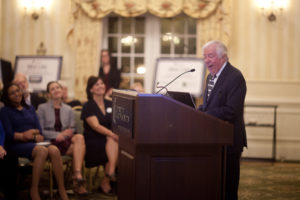The annual fall weekend event at the University of Mary Washington is back, and brings family members and friends to campus to experience a slice of student life. A variety of events are happening, and a complimentary trolley extends your visit to downtown Fredericksburg.
Please visit our full schedule of events for information on everything happening around campus and the Fredericksburg area from October 6-8! You may also contact me at agauch@umw.edu if you have any other questions.
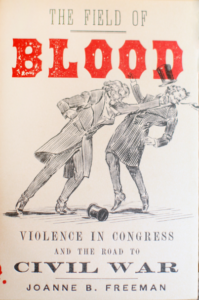 Missing UMW’s celebrated Great Lives lecture series? Coronavirus cut this season short, but you can catch pre-recorded episodes on C-SPAN. Acclaimed author Joanne Freeman kicks off the three-part series by discussing her book, Field of Blood, which recovers the long-lost story of physical violence on the floor of the U.S. Congress.
Missing UMW’s celebrated Great Lives lecture series? Coronavirus cut this season short, but you can catch pre-recorded episodes on C-SPAN. Acclaimed author Joanne Freeman kicks off the three-part series by discussing her book, Field of Blood, which recovers the long-lost story of physical violence on the floor of the U.S. Congress.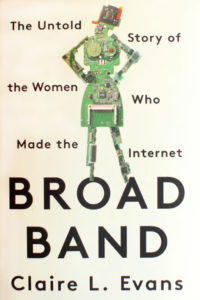 C-Span’s American History TV will air the Great Lives lecture from Tuesday, March 10, “Female Internet Inventors,” by Claire Evans, author of Broad Band: The Untold Story of the Women Who Made the Internet. Titled “Women and Computers,” the program will air at the following times:
C-Span’s American History TV will air the Great Lives lecture from Tuesday, March 10, “Female Internet Inventors,” by Claire Evans, author of Broad Band: The Untold Story of the Women Who Made the Internet. Titled “Women and Computers,” the program will air at the following times: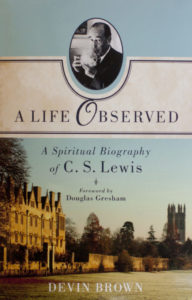 The Great Lives series continues on Thursday, March 12, with C.S. Lewis, featuring Devin Brown, author of A Life Observed: A Spiritual Biography of C.S. Lewis. The Coldwell Banker Elite Lecture.
The Great Lives series continues on Thursday, March 12, with C.S. Lewis, featuring Devin Brown, author of A Life Observed: A Spiritual Biography of C.S. Lewis. The Coldwell Banker Elite Lecture.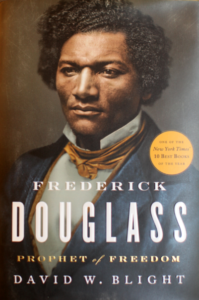 The 17th season of the William B. Crawley Great Lives Lecture Series continues on Thursday, Feb. 27, with abolitionist, orator and author Frederick Douglass, with David W. Blight, author of The New York Times bestseller Frederick Douglass: Prophet of Freedom. This series is open to the public free of charge and no admission tickets are required. Programs begin at 7:30 p.m. in Dodd Auditorium in George Washington Hall. Each lecture concludes with an audience Q&A session with the speaker and a book-signing. The Synergy Periodontics and Implants Lecture.
The 17th season of the William B. Crawley Great Lives Lecture Series continues on Thursday, Feb. 27, with abolitionist, orator and author Frederick Douglass, with David W. Blight, author of The New York Times bestseller Frederick Douglass: Prophet of Freedom. This series is open to the public free of charge and no admission tickets are required. Programs begin at 7:30 p.m. in Dodd Auditorium in George Washington Hall. Each lecture concludes with an audience Q&A session with the speaker and a book-signing. The Synergy Periodontics and Implants Lecture.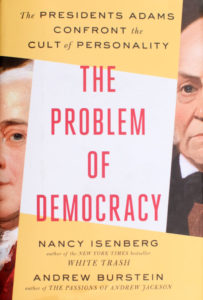 The Great Lives series continues on Tuesday, Feb. 25 with John Adams and John Quincy Adams, presented by Nancy Isenberg and Andrew Burstein, authors of the book, The Problem with Democracy: The Presidents Adams Confront the Cult of Personality. The Parrish Snead Franklin Simpson, PLC Lecture.
The Great Lives series continues on Tuesday, Feb. 25 with John Adams and John Quincy Adams, presented by Nancy Isenberg and Andrew Burstein, authors of the book, The Problem with Democracy: The Presidents Adams Confront the Cult of Personality. The Parrish Snead Franklin Simpson, PLC Lecture.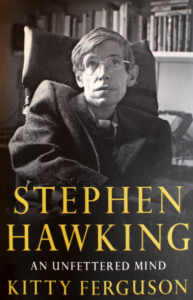 The 17th season of the William B. Crawley Great Lives Lecture Series continues on Tuesday, Feb. 18, with a look at the brilliant and enigmatic scientist and disability icon Stephen Hawking, with biographer Kitty Ferguson. This series is open to the public free of charge and no admission tickets are required. Programs begin at 7:30 p.m. in Dodd Auditorium in George Washington Hall. Each lecture concludes with an audience Q&A session with the speaker and a book-signing. The Dovetail Cultural Resources Group Lecture.
The 17th season of the William B. Crawley Great Lives Lecture Series continues on Tuesday, Feb. 18, with a look at the brilliant and enigmatic scientist and disability icon Stephen Hawking, with biographer Kitty Ferguson. This series is open to the public free of charge and no admission tickets are required. Programs begin at 7:30 p.m. in Dodd Auditorium in George Washington Hall. Each lecture concludes with an audience Q&A session with the speaker and a book-signing. The Dovetail Cultural Resources Group Lecture.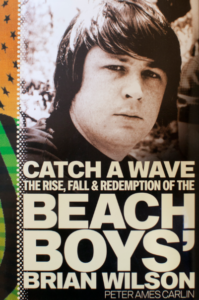 The 17th season of the William B. Crawley Great Lives Lecture Series continues this evening, Feb. 6, with a look at the quintessential American band, The Beach Boys, as well as the artistic genius and downward spiral of its leader, Brian Wilson. Biographer Peter Ames Carlin will talk about his book, Catch a Wave: The Rise, Fall & Redemption of The Beach Boys’ Brian Wilson. This series is open to the public free of charge and no admission tickets are required. Programs begin at 7:30 p.m. in Dodd Auditorium in George Washington Hall. Each lecture concludes with an audience Q&A session with the speaker and a book-signing. The Davenport & Company Lecture.
The 17th season of the William B. Crawley Great Lives Lecture Series continues this evening, Feb. 6, with a look at the quintessential American band, The Beach Boys, as well as the artistic genius and downward spiral of its leader, Brian Wilson. Biographer Peter Ames Carlin will talk about his book, Catch a Wave: The Rise, Fall & Redemption of The Beach Boys’ Brian Wilson. This series is open to the public free of charge and no admission tickets are required. Programs begin at 7:30 p.m. in Dodd Auditorium in George Washington Hall. Each lecture concludes with an audience Q&A session with the speaker and a book-signing. The Davenport & Company Lecture.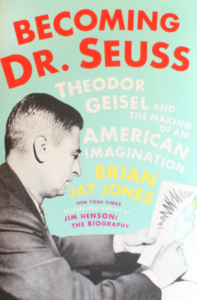 The Great Lives series will continue on Tuesday, Feb. 11, with Becoming Dr. Seuss: Theodor Geisel and the Making of an American Imagination, by Brian Jay Jones, The New York Times bestselling author of Jim Henson: The Biography. The JON Properties/Van Zandt Restorations Lecture.
The Great Lives series will continue on Tuesday, Feb. 11, with Becoming Dr. Seuss: Theodor Geisel and the Making of an American Imagination, by Brian Jay Jones, The New York Times bestselling author of Jim Henson: The Biography. The JON Properties/Van Zandt Restorations Lecture.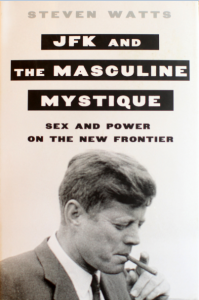 The 17th season of the William B. Crawley Great Lives Lecture Series continues this evening, Jan. 30, with a look at the handsome, young president who was the epitome of masculinity in the early 1960s and the debonair spy who captivated fiction readers and filmgoers, including JFK himself. This series is open to the public free of charge and no admission tickets are required. Programs begin at 7:30 p.m. in Dodd Auditorium in George Washington Hall. Each lecture concludes with an audience Q&A session with the speaker and a book-signing. The John and Linda Coker Lecture.
The 17th season of the William B. Crawley Great Lives Lecture Series continues this evening, Jan. 30, with a look at the handsome, young president who was the epitome of masculinity in the early 1960s and the debonair spy who captivated fiction readers and filmgoers, including JFK himself. This series is open to the public free of charge and no admission tickets are required. Programs begin at 7:30 p.m. in Dodd Auditorium in George Washington Hall. Each lecture concludes with an audience Q&A session with the speaker and a book-signing. The John and Linda Coker Lecture. One of the most widely discussed and controversial events of the Cold War was the downing of the American U-2 spy plane piloted by Francis Gary Powers over the Soviet Union on May 1, 1960. The event was recently depicted in the Steven Spielberg movie Bridge of Spies. Powers was captured by the KGB, subjected to a televised show trial, and imprisoned, all of which created an international incident. Soviet authorities eventually released him in exchange for captured Soviet spy Rudolf Abel. On his return to the United States, Powers was exonerated of any wrongdoing while imprisoned in Russia, yet a cloud of controversy lingered until his untimely death in 1977.
One of the most widely discussed and controversial events of the Cold War was the downing of the American U-2 spy plane piloted by Francis Gary Powers over the Soviet Union on May 1, 1960. The event was recently depicted in the Steven Spielberg movie Bridge of Spies. Powers was captured by the KGB, subjected to a televised show trial, and imprisoned, all of which created an international incident. Soviet authorities eventually released him in exchange for captured Soviet spy Rudolf Abel. On his return to the United States, Powers was exonerated of any wrongdoing while imprisoned in Russia, yet a cloud of controversy lingered until his untimely death in 1977.